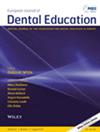Development of Evidence-Based Guidelines for the Integration of Generative AI in University Education Through a Multidisciplinary, Consensus-Based Approach
Abstract
Introduction
The introduction highlights the transformative impact of generative artificial intelligence (GenAI) on higher education (HE), emphasising its potential to enhance student learning and instructor efficiency while also addressing significant challenges such as accuracy, privacy, and ethical concerns. By exploring the benefits and risks of AI integration, the introduction underscores the urgent need for evidence-based, inclusive, and adaptable frameworks to guide universities in leveraging GenAI responsibly and effectively in academic environments.
Aims
This paper presents a comprehensive process for developing cross-disciplinary and consensus-based guidelines, based on the latest evidence for the integration of GenAI at European University Cyprus (EUC). In response to the rapid adoption of AI tools such as LLMs in HE, a task group at EUC created a structured framework to guide the ethical and effective use of GenAI in academia, one that was intended to be flexible enough to incorporate new developments and not infringe on instructors' academic freedoms, while also addressing ethical and practical concerns.
Results
The framework development was informed by extensive literature reviews and consultations. Key pillars of the framework include: addressing the risks and opportunities presented by GenAI; promoting transparent communication; ensuring responsible use by students and educators; safeguarding academic integrity. The guidelines emphasise the balance between, on the one hand, leveraging AI to enhance educational experiences, and, on the other maintaining critical thinking and originality. The framework also includes practical recommendations for AI usage, classroom integration, and policy formulation, ensuring that AI augments rather than replaces human judgement in educational settings.
Conclusions
The iterative development process, including the use of GenAI tools for refining the guidelines, illustrates a hands-on approach to AI adoption in HE, and the resulting guidelines may serve as a model for other higher education institutions (HEIs) aiming to integrate AI tools while upholding educational quality and ethical standards.


 求助内容:
求助内容: 应助结果提醒方式:
应助结果提醒方式:


